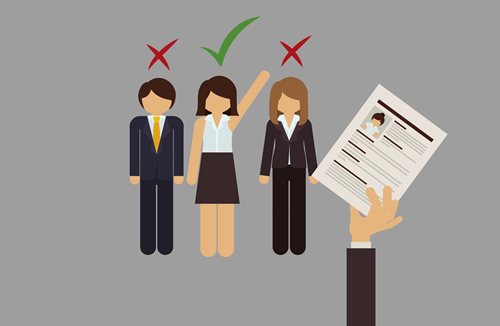October 16, 2017
By Luna Greenstein
The short answer is yes—stigma does prevent people with mental illness from getting a job. But why?

Well, people with mental health conditions are typically held responsible and blamed for their behavior and symptoms. Simultaneously, they are perceived as unable to make decisions for themselves. This causes people with mental health conditions to be perceived as “unsuitable” for the workforce. In fact, Gary Becker, a Nobel prize-winning economist concluded that discrimination lowers the probability that members of a stigmatized group will be hired, and their wages are significantly reduced if they are.
This is especially true for people with schizophrenia, who fare poorer than any other disadvantaged group in the labor market. Individuals living with the condition are 6–7 times more likely to be unemployed than the general population with a 70-90% unemployment rate—a higher rate than any other group with disabilities in the United States. To make matters worse, research study Labor Market Outcomes of Persons with Mental Disorders points out the sad truth that improved treatments for schizophrenia have only had a marginal impact on employment outcomes.
The message those living with schizophrenia often hear is that their future is limited by the severity of their condition—that their abilities and talents live only in the shadows of their symptoms. But the truth is: People experiencing schizophrenia are more often limited by stereotypes and stigma than their actual symptoms.
According to the National Institute of Mental Health, the largest component of the total cost of schizophrenia is the loss of income due to unemployment. More policies need to be put in place to help people with schizophrenia acquire jobs. Here are some things they can do to ensure a person with schizophrenia can begin and continue working:
Company leaders and managers can:
Human resources can:
Individuals can:
Whether you own a company or work for one, you can make a difference because the root of the problem is stigma. Stigma doesn’t start with human resources or company executives—it starts with individuals and how they perceive schizophrenia and other mental illnesses. For those who live with schizophrenia, getting back to work is often a top recovery goal. Support them and NAMI’s movement to create a stronger, StigmaFree culture. Let them know there is hope. Together, we can change the way the world sees mental illness.
Laura Greenstein is communications coordinator at NAMI.
We’re always accepting submissions to the NAMI Blog! We feature the latest research, stories of recovery, ways to end stigma and strategies for living well with mental illness. Most importantly: We feature your voices.
LEARN MORENAMI HelpLine is available M-F, 10 a.m. – 10 p.m. ET. Call 800-950-6264,
text “NAMI” to 62640, or email. In a crisis, call or text 988 (24/7).